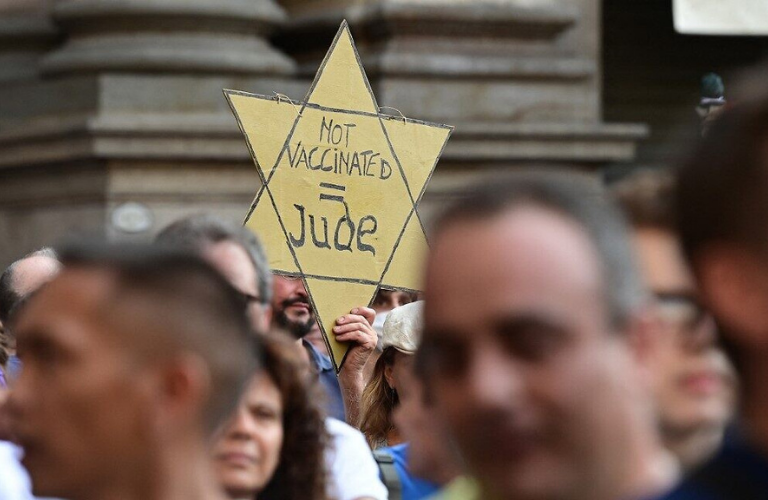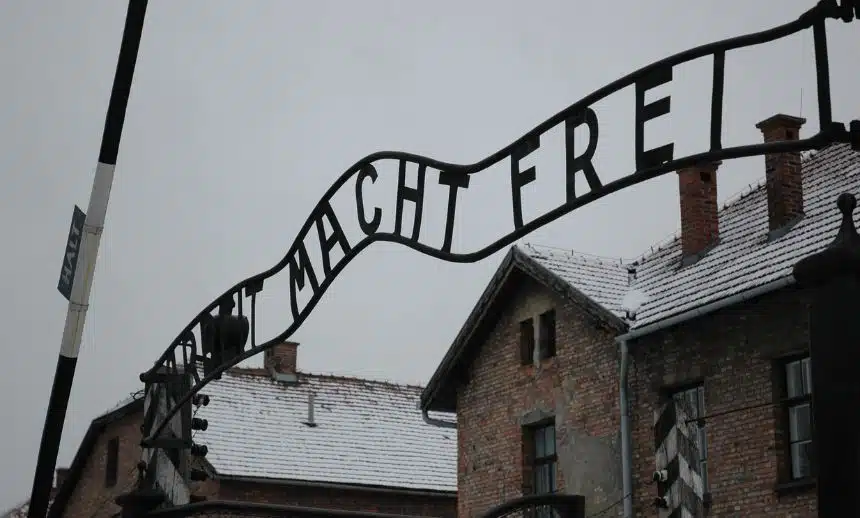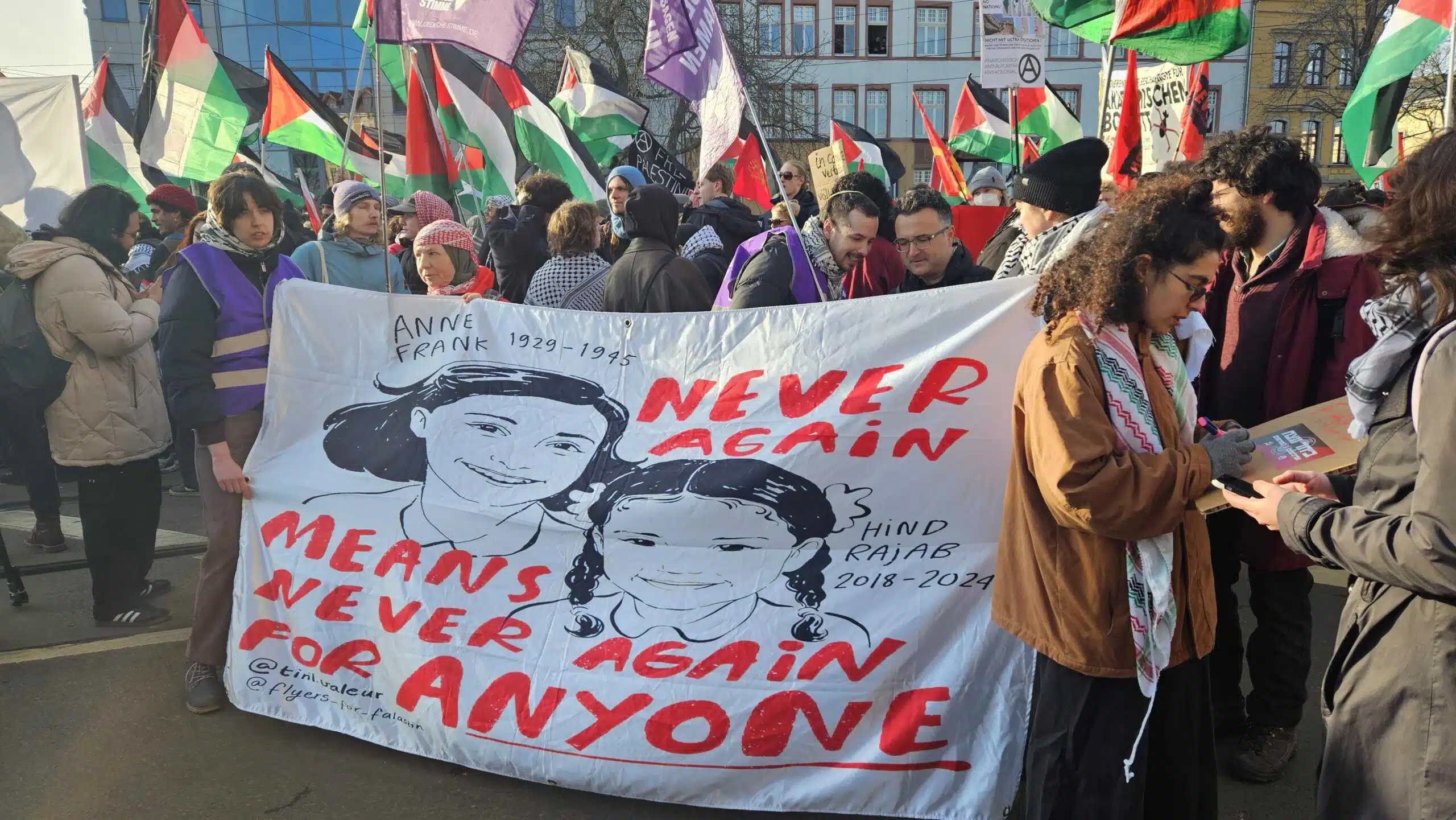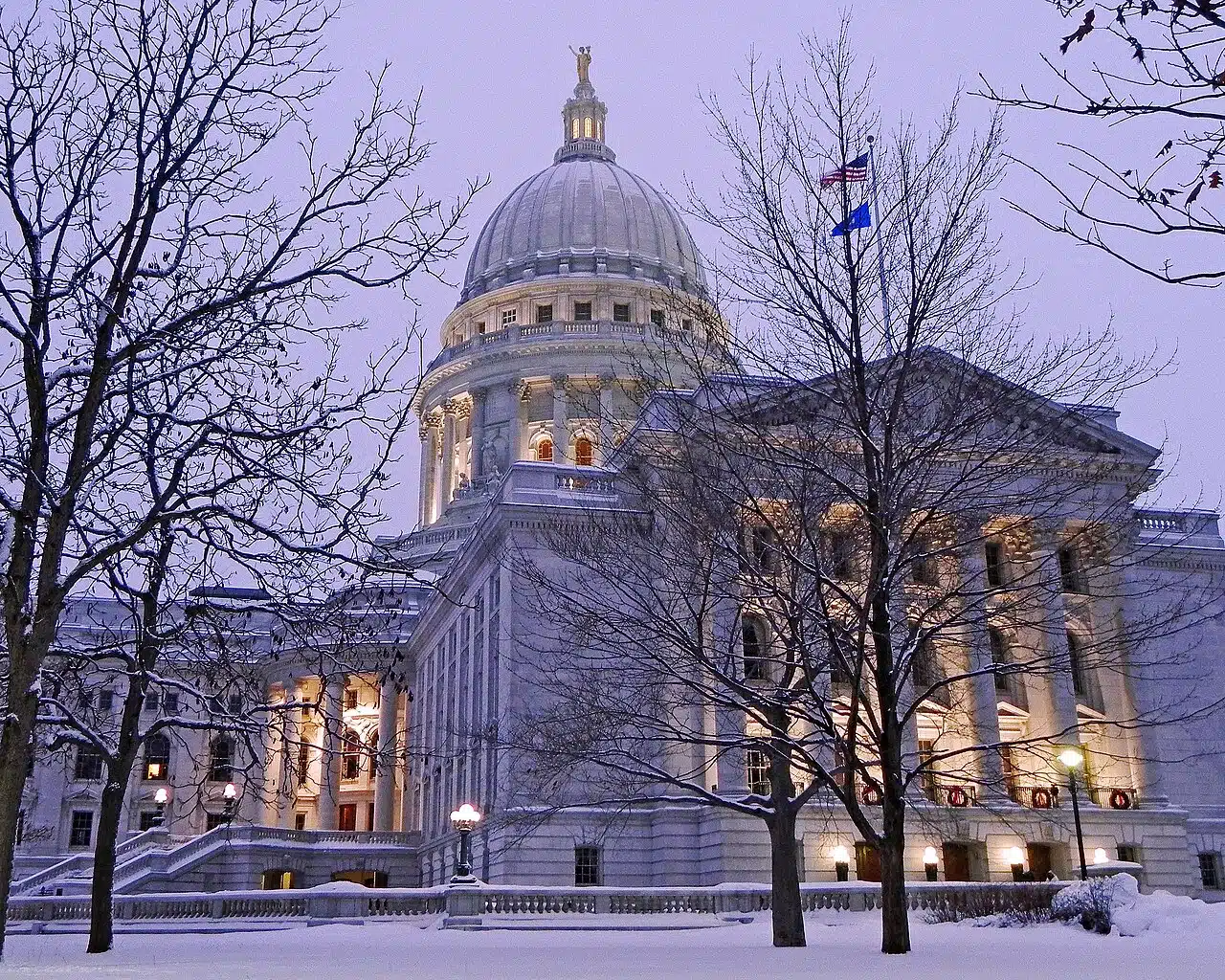
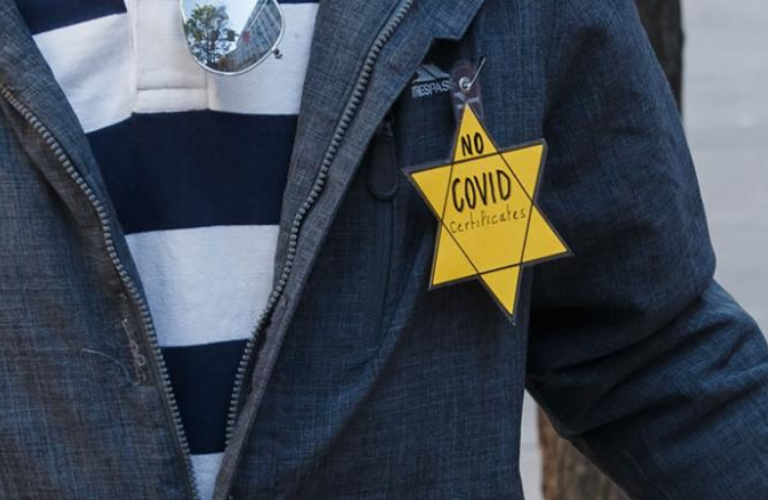
Covid-19 Protests Fuel Spread of Holocaust Trivialization in Western Europe, North America
The growing normalization of Holocaust trivialization — largely in Western Europe and North America — is an alarming phenomenon that the Combat Antisemitism Movement (CAM) Information Hub detected earlier this summer and has been closely monitoring since.
This trend is mainly, but not exclusively, linked to rhetoric employed by critics of health measures implemented by governments to fight the ongoing global Covid-19 pandemic.
The most commonly-seen manifestation is the appropriation of the Holocaust-era “Judenstern” (“yellow Star of David”) as a protest symbol.
Demonstrators in cities such as London, Paris, Amsterdam, Montreal, and New York have donned the badges — which Jews were forced to wear in German-controlled areas of Europe during World War II — in an outrageous attempt to compare current health restrictions to the Nazi persecution of the Jews.
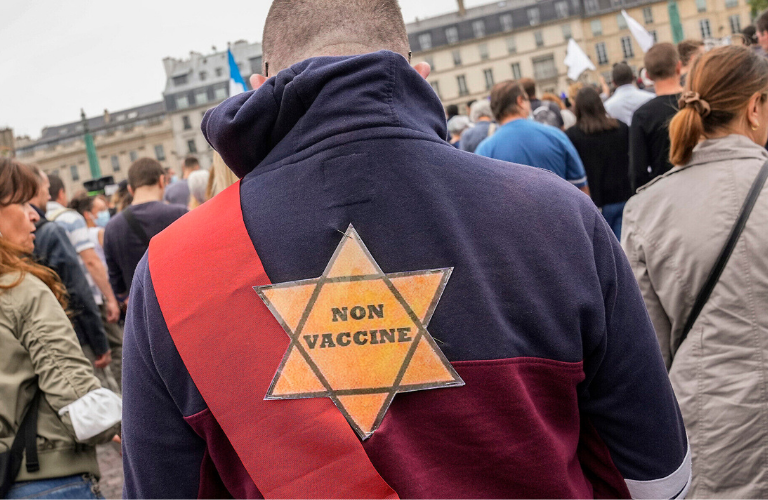
Such displays have also been witnessed at city council and school board meetings, particularly in the U.S.
In Springfield, Missouri, citizens wearing yellow stars claimed that mask and vaccine mandates were a precursor to genocide, prompting a condemnation from the city council. And at a school board meeting in Bethel Park, Pennsylvania, one attendee yelled, “Dobos and her Nazis are out,” referring to the school board president after a vote approving mask-wearing requirements.
Numerous politicians have amplified the trend. U.S. Congressman Thomas Massie (R-KY), for example, posted on Twitter an image of a number-tattooed wrist to liken vaccine mandates to the Holocaust. And in Australia, Cumberland City Mayor Steve Christou shared an infographic on new lockdown rules with the comment, “Welcome to Nazi Germany.”
Unfortunately, Holocaust trivialization is also spreading outside of pandemic-related discourse. In Spain, at the University of Santiago of de Compostela, a course titled “Auschwitz/Gaza: A Testing Ground for Comparative Literature” made parallels between the Holocaust and the Israeli-Palestinian conflict. In the United Kingdom, local Labour councilors compared the ruling Conservative government to the Nazi SS. And in the United States, a Virginia House of Delegates candidate said being a conservative teacher now was like being a Jew in Germany in the 1930s.
One of the International Holocaust Remembrance Alliance (IHRA) working definition of antisemitism’s 11 examples of Jew-hatred is: “Denying the fact, scope, mechanisms (e.g. gas chambers) or intentionality of the genocide of the Jewish people at the hands of National Socialist Germany and its supporters and accomplices during World War II (the Holocaust).”
Trivialization or minimalization of the Holocaust paves the way to outright denial of the worst crime in human history.
Holocaust comparisons are never legitimate, as they obfuscate the uniquely evil nature and extent of the Nazi genocide of six million Jews. The memory of the victims should be considered sacred, and left out of contemporary political and cultural battles.
Correctly understanding the lessons of history is key to ensuring “Never again means never again” and identifying true existential threats to the Jewish people in time to confront them effectively, particularly as the number of survivors who experienced the Holocaust firsthand dwindles.
Comparing events to the Holocaust that bear no resemblance to it whatsoever gravely undermines this vital mission.
